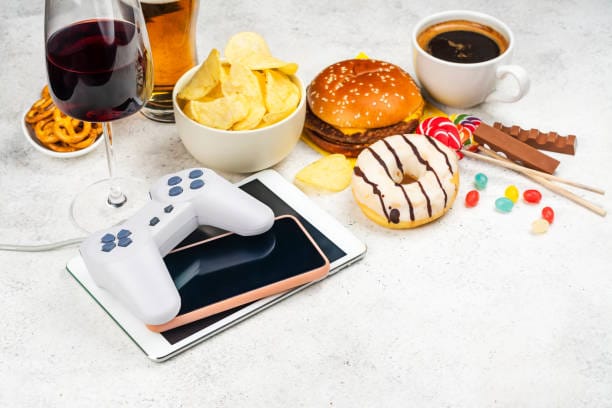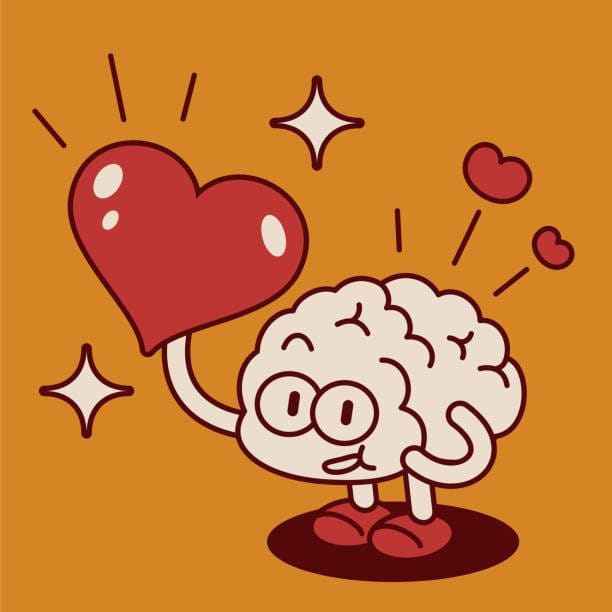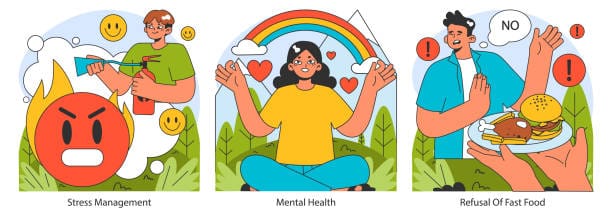Why Do We Get Addicted to Certain Habits or Routines?

Some of our habits are productive like getting through that long list of to-dos or waking up early to hit the gym before going to the office. Then there are also those sneaky habits that start small but gradually take over your life. It feels harmless at first, but before you know it, these routines start calling the shots.
So, why do some habits take over so easily? Why do certain things become addictive, even when you know they’re not doing you any good? Let’s look at the mechanics behind how we get hooked on specific behaviors and why breaking free can be harder than it seems.
The Dopamine Rush

Our brain is hardwired to seek pleasure. Every time you do something enjoyable, your brain releases dopamine, the chemical responsible for pleasure and reward. But, this same system that encourages you to do things that benefit your survival can also encourage you to keep doing things that are fleeting, like scrolling through social media or binging a show you’re not even that into. These activities release just enough dopamine to keep you hooked. It’s a cycle as each time you engage in a behavior that triggers this release, your brain wants more of it. This is the addictive nature of habits.
Why do some habits stick while others don’t? The key is how often the behavior rewards you with that dopamine boost. Habits that provide more frequent or immediate rewards are more likely to become ingrained because the reward is immediate, and the brain gets hooked on that quick gratification. The more you repeat those behaviors, the harder they become to shake off.
The Habit Loop
Ever feel like you’re caught in a loop? You wake up, check your phone, have your morning coffee, and head to work. After a stressful day, you wind down with a drink or some Netflix. These small routines, repeated day after day, form a habit loop. It is a cycle your brain is happy to repeat because it’s predictable and comfortable.
The habit loop works like this:
- Cue: Something triggers the habit. Maybe it’s stress, boredom, or even just the time of day.
- Routine: You do the behavior—grab the coffee, scroll on your phone, have that drink.
- Reward: It feels good, doesn’t it? The brain gets its dopamine hit, reinforcing the loop.
Some habits stick more easily because they complete this loop faster. For example, checking your phone first thing in the morning can feel rewarding because the cue is waking up, the routine is grabbing your phone, and the reward is the instant dopamine you get from seeing new notifications. This loop happens quickly, making the habit feel almost automatic.
On the other hand, habits that require more effort or take longer to see rewards are harder to establish. These habits don’t give you an immediate dopamine rush, and because your brain prefers short-term rewards, these behaviors can be harder to stick with.
Sometimes, the reason we stick with certain habits becomes about how it fits with our identity or social group. A lot of the habits we form are connected to how we want to be seen by others or how we want to see ourselves. For example, if you identify as a "guy who works out" or "the life of the party," certain habits reinforce that identity.
Social habits are also easier to stick to because they connect us with others. These habits become part of the social glue that keeps us connected to our circles. Even if you realize these habits don’t add value to your life, breaking them can feel like breaking a part of your identity or your social ties.

In today’s world, everything is designed for instant gratification. From social media updates to fast food, we live in an age where we expect things to happen immediately. This has trained our brains to prioritize quick rewards over long-term benefits. For example, it’s easier to grab a quick snack than wait for a healthy meal to be prepared, and it’s much simpler to binge-watch a show than to work toward a long-term goal.
Habits that provide instant satisfaction are often harder to quit because they provide a fast reward. On the other hand, habits that require effort and delayed gratification take longer to show their benefits, so they don’t have the same immediate appeal. Your brain wants a reward now, and when it doesn’t get it, sticking to that habit becomes more of a struggle.
Why Change Feels So Hard
We love knowing what to expect, and routines give us that stability. It’s why we fall into patterns, because they make us feel secure. You wake up, you grab your coffee, and you know exactly what to expect. It’s predictable. And in a world full of chaos, that predictability feels good.
But comfort can also be a trap. The more you stick to the same habits, the harder it becomes to change them. Even if you know a routine isn’t serving you anymore, the thought of breaking it feels overwhelming. After all, you’ve done it this way for so long. Changing that routine requires effort, discomfort, and sometimes facing things you’ve been avoiding.

But don’t worry. We can overcome the tough part of habit infringement (respective of bad ones) and build up good ones. Recognizing the habit loop is the first step. Once you see the patterns -when you’re triggered, what the routine is, and how it feels afterward-you can start to make intentional changes. Start small: swap out one bad habit for something better. With time and consistency, you can rebuild your habits and create healthier, more rewarding routines.
Now, checking whether your patterns are helping you shape into something better or are saturating you, is a good habit to learn. Understanding how habits work gives you the power to take control. Ask yourself: is this habit helping you, or is it keeping you stuck? You’ve got the power to break free, rebuild your routines, and create habits that actually help you level up.